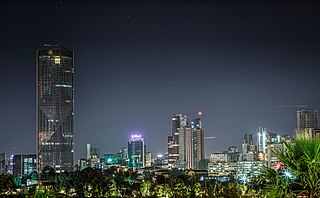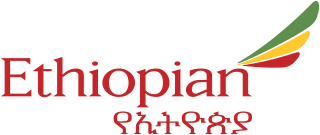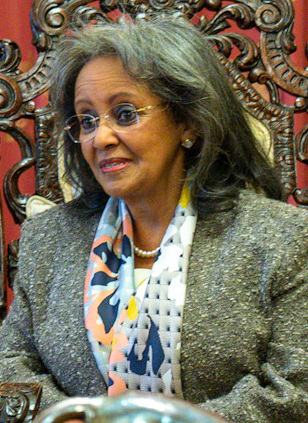Related Research Articles

Haile Selassie I was Emperor of Ethiopia from 1930 to 1974. He rose to power as Regent Plenipotentiary of Ethiopia (Enderase) for Empress Zewditu from 1916. Haile Selassie is widely considered a defining figure in modern Ethiopian history, and the key figure of Rastafari, a religious movement in Jamaica that emerged shortly after he became emperor in the 1930s. Before he rose to power he defeated Ras Gugsa Wole Bitul of Begemidr at the Battle of Anchem in 1928. He was a member of the Solomonic dynasty, which claims to trace lineage to Emperor Menelik I, believed to be the son of King Solomon and Makeda, the Queen of Sheba.

Addis Ababa is the capital and largest city of Ethiopia. In the 2007 census, the city's population was estimated to be 2,739,551 inhabitants. Addis Ababa is a highly developed and important cultural, artistic, financial and administrative centre of Ethiopia. It also serves as the capital of the Oromia Region.

Ethiopia, officially the Federal Democratic Republic of Ethiopia, is a landlocked country located in the Horn of Africa region of East Africa. It shares borders with Eritrea to the north, Djibouti to the northeast, Somalia to the east and southeast, Kenya to the south, South Sudan to the west, and Sudan to the northwest. Ethiopia covers a land area of 1,112,000 square kilometres. As of 2023, it is home to around 126.5 million inhabitants, making it the 13th-most populous country in the world, the 2nd-most populous in Africa after Nigeria, and the most populated landlocked country on Earth. The national capital and largest city, Addis Ababa, lies several kilometres west of the East African Rift that splits the country into the African and Somali tectonic plates.

The Ethiopian Orthodox Tewahedo Church is the largest of the Oriental Orthodox Churches. One of the few Christian churches in sub-Saharan Africa originating before European colonization of the continent, the Ethiopian Orthodox Tewahedo Church dates back to the acceptance of Christianity by the Kingdom of Aksum in 330, and has between 36 million and 51 million adherents in Ethiopia. It is a founding member of the World Council of Churches. The Ethiopian Orthodox Tewahedo Church is in communion with the other Oriental Orthodox churches.

The president of Ethiopia is the head of state of Ethiopia. The position is largely ceremonial with executive power vested in the Council of Ministers chaired by the prime minister. The current president is Sahle-Work Zewde, who took office on 25 October 2018. Presidents are elected by the Federal Parliamentary Assembly for six years.

Ethiopian Airlines, formerly Ethiopian Air Lines (EAL), is the flag carrier of Ethiopia, and is wholly owned by the country's government. EAL was founded on 21 December 1945 and commenced operations on 8 April 1946, expanding to international flights in 1951. The firm became a share company in 1965 and changed its name from Ethiopian Air Lines to Ethiopian Airlines.

Ethiopia is a federation subdivided into ethno-linguistically based regional states and chartered cities. This system of administrative regions replaced the provinces of Ethiopia in 1992.

The Beta Israel, also known as Ethiopian Jews, are a Jewish community that lived for centuries in the area of the Kingdom of Aksum and the Ethiopian Empire, which is currently divided between the modern-day Amhara and Tigray regions of Ethiopia. Most of the Beta Israel community immigrated to Israel in the late 20th century.

The prime minister of Ethiopia is the head of government and chief executive of Ethiopia. Ethiopia is a parliamentary republic with a prime minister as head of the government and the commander-in-chief of the Ethiopian Armed Forces. The prime minister is the most powerful political figure in Ethiopian politics. The official residence of the prime minister is the Menelik Palace in Addis Ababa. The prime minister is elected from the members of the House of Peoples' Representatives and presents a government platform. The prime minister must receive a vote of confidence in the House of Peoples' Representatives to exercise executive power as chief executive. Abiy Ahmed is the third prime minister of the Federal Democratic Republic of Ethiopia, serving since April 2018.

The Ethiopian Empire, also formerly known by the exonym Abyssinia, or just simply known as Ethiopia, was an empire that historically spanned the geographical area of present-day Ethiopia and Eritrea from the establishment of the Solomonic dynasty by Yekuno Amlak approximately in 1270 until the 1974 coup d'etat of Emperor Haile Selassie by the Derg. By 1896, the Empire incorporated other regions such as Hararghe, Gurage and Wolayita, and saw its largest expansion with the federation of Eritrea in 1952. Throughout much of its existence, it was surrounded by hostile forces in the African Horn; however, it managed to develop and preserve a kingdom based on its ancient form of Christianity.

Eritrea, officially the State of Eritrea, is a country in the Horn of Africa region of Eastern Africa, with its capital and largest city at Asmara. It is bordered by Ethiopia in the south, Sudan in the west, and Djibouti in the southeast. The northeastern and eastern parts of Eritrea have an extensive coastline along the Red Sea. The nation has a total area of approximately 117,600 km2 (45,406 sq mi), and includes the Dahlak Archipelago and several of the Hanish Islands.

Sahle-Work Zewde is an Ethiopian politician and diplomat who is the president of Ethiopia since 2018, being the first woman to hold the office. She was elected as president unanimously by members of the Federal Parliamentary Assembly on 25 October 2018.

Miss Ethiopia is a national beauty pageant in Ethiopia.

Injera is a sour fermented pancake-like flatbread with a slightly spongy texture, traditionally made of teff flour. In Ethiopia, Eritrea, and some parts of Sudan and Kenya, injera is a staple. Injera is central to the dining process, like bread or rice elsewhere.

The Tigray War was an armed conflict that lasted from 3 November 2020 to 3 November 2022. The war was primarily fought in the Tigray Region of Ethiopia between forces allied to the Ethiopian federal government and Eritrea on one side, and the Tigray People's Liberation Front (TPLF) on the other.